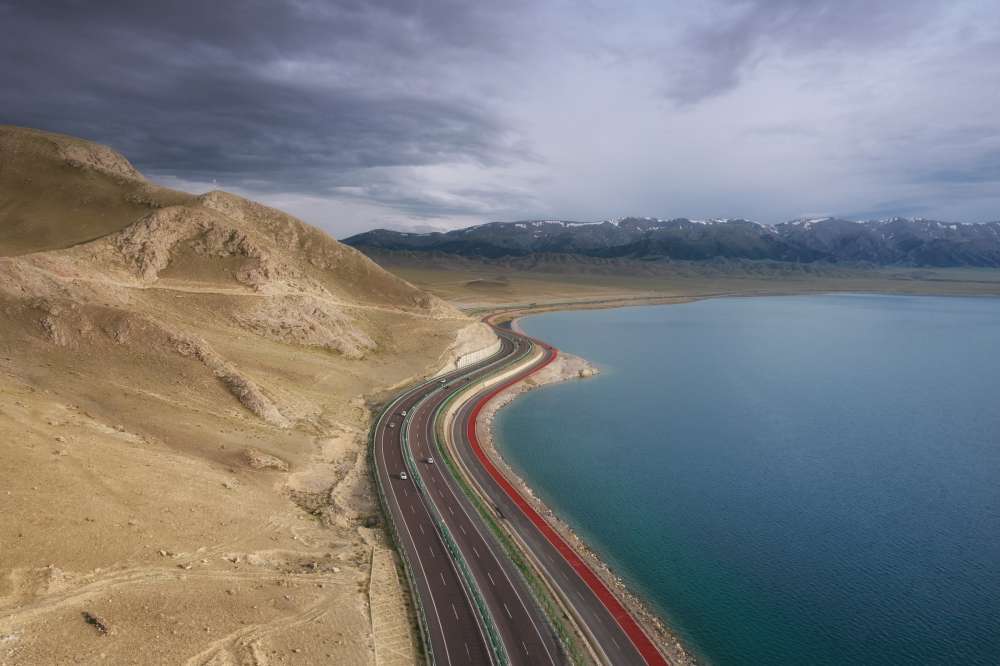Structural Power: A Global Infrastructure Policy Should be Part of a Positive Vision for the International Order

Source: Zongnan Bao /Unsplash
Countries in the Global South are suffering from massive infrastructure investment gaps. Germany should spur the EU’s sluggish infrastructure policy as part of a wider effort to promote a positive vision for the international order.
Roads, train lines, ports, satellites, and telecommunication networks create connectivity between people and economies. But in the so-called ‘Global South’, countries often suffer from inadequate infrastructure investment, hindering economic development and undermining support for the international order. Indeed, infrastructure assistance by the G7 countries and multilateral lenders like the World Bank had, at least until recently, been in decline for years. Meanwhile, China has sought to fill that void through its umbrella Belt and Road Initiative (BRI).
For Germany, as much as for the EU, an active global infrastructure policy is central to its ambitions to gain much needed credibility in the Global South. Doing so requires offering a democratic, transparent and sustainable alternative to the BRI that is tailored to the needs of the respective recipient countries. The widespread unwillingness of countries in the Global South to criticize Russia’s war on Ukraine once again testifies to the need to generate much more ownership of the international order beyond the liberal democratic core.
Beijing’s Growing Influence
To this end, constructing physical and digital infrastructures is no mere technical endeavor aimed at promoting connectivity and economic development. China strategically uses massive infrastructure investments to access critical materials, create dependencies, promote its norms and standards, and thus gain influence across the globe. So far, both the EU’s and Germany’s lackluster and disjointed responses have allowed China to establish itself as the central provider of key infrastructures in swathes of the Global South, and pushed many initially reluctant countries into Beijing’s fold.
» The EU’s and Germany’s lackluster and disjointed responses have allowed China to establish itself as the central provider of key infrastructures in swathes of the Global South, and pushed many initially reluctant countries into Beijing’s fold. «
Through the BRI and its digital variant, the Digital Silk Road, China’s spending could amount to $1 trillion by 2027 (though Chinese opacity means that reliable figures are hard to come by). From train connections to the Persian Gulf, to Smart City surveillance systems and 4G networks in Africa, to highways in the Balkans, China has been creating facts on the ground. And notwithstanding declining funding levels, widespread construction problems and growing local pushback, the recent Chinese Communist Party Congress confirmed that the BRI is here to stay.
Chinese investment has bought Beijing significant influence in recipient countries. China lends significant – and at times unsustainable – sums to states around the world. In doing so, it weaves a web of dependencies that Beijing uses to exert political pressure to support its positions in international bodies or gain control over critical infrastructure. Furthermore, China also diffuses its autocratic governance model through the BRI. Investments often lack transparency and abet corruption. What is more: They usually come without domestic conditionalities on, for example, labor or environmental standards. And Chinese surveillance technology props up autocratic regimes.
A European Infrastructure Strategy
The G7 countries have been slow to recognize the political repercussions of their under-investment in infrastructure. But recently, many of them have responded. The EU launched a limited Connectivity Strategy in 2018 to deepen networks between Europe and Asia. In 2021, the Biden Administration announced the Build Back Better World Initiative and the EU unveiled the Global Gateway Initiative, which pledged an annual $40 billion and €60 billion, respectively. And last year, the G7 appeared to aggregate these initiatives under the label of Partnership for Global Infrastructure and Investment (PGII) to mobilize $600 billion through to 2027.
Key Points:
- The EU and Germany have allowed China to establish itself as the main provider of key infrastructures in the Global South – which hurts their credibility with states in the region.
- To improve European infrastructure policy, Germany should openly support the Global Gateway Initiative, including advocating for a special representative to accompany the initiative.
- As a part of improving its infrastructure efforts, Germany should redesign its foreign policy-making processes to align development, trade and security policy.
Despite this flurry of initiatives, confusion reigns. It is still unclear how these various programs relate to one another in practice. More than a year after its conception, the funding for the EU’s Global Gateway also remains nebulous. In late 2022, the European Commission declared that no new funding would be available, while the division of labor between the two EU funding bodies involved – the European Investment Bank and the European Bank for Reconstruction and Development – also remains vague. Meanwhile, EU member states are quarreling over the geographic distribution of potential projects, reflecting traditional national parochialisms.
With no institutional driving force behind it, the EU’s Global Gateway Initiative – supposedly its central geopolitical project – lacks ownership in Brussels. At last, in January 2023, the EU discussed a list of 70 concrete Global Gateway projects, with European Commission President Ursula von der Leyen seemingly seizing leadership of the initiative. And the current talk of the town is that the EU wants to appoint a special Global Gateway representative (though Mario Draghi, whose name has been prominently floated, expressed his disinterest in the role).
Germany’s Role in Driving the EU’s Infrastructure Policy
While the primary onus lies on the EU when it comes to infrastructure, there are several steps that Germany can take to advance the Global Gateway initiative and help promote its positive vision. At the most basic level, the German government should openly support the initiative against skeptics in Brussels. This should also include making the case for a high-level appointment of a Global Gateway special representative to provide political direction. The example of Michel Barnier as the EU’s Brexit negotiator showed that such a political figurehead can make a real difference.
» Germany and the EU are in dire need of a positive vision for the future international order. «
At the same time, the EU member states also need to help mobilize capital. Here, Germany could rethink its foreign trade and investment promotion policy by, among other actions, extending investment guarantees for infrastructure projects in the Global South. The multi-dimensional nature of global infrastructure serves as yet another reason for Germany to redesign its foreign policy-making processes to align development, trade and security policy.
On a more fundamental level, Germany and the EU are in dire need of a positive vision for the future international order. An active infrastructural policy that spurs economic development in the Global South, promotes sustainability and transparency, and deepens political ties could be a cornerstone of such a vision and should be an integral part of Germany’s National Security Strategy.
This article is based on a chapter of the Munich Security Report 2023.
Leonard Schütte
Senior Researcher at the Munich Security Conference
Weiterlesen

Germany’s Cybersecurity Posture? Let’s Focus on Resilience
Adopting a resilience approach not only means making Germany more secure – it also serves to strengthen global peace and security. By investing in resilience at home, Berlin can act as a norm-setter on the international stage.

Die Notwendigkeit feministischer Cyberpolitik
Solange es Diskriminierung und Gewalt in der offline-Welt gibt, sind rein technische Lösungen für Konflikte im Cyberraum undenkbar. Deshalb brauchen wir eine feministische Cyberpolitik, die Menschen und strukturelle Ungleichheiten in den Fokus nimmt.